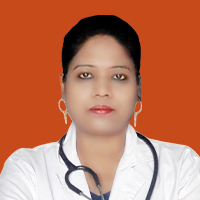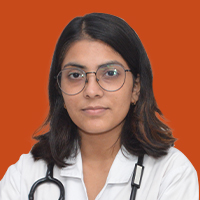

Successful Treatments
Clinics
Doctors
What is Acne and What Does Ayurveda Say About It?
Acne is a common skin issue that can appear as pimples, whiteheads, blackheads, or painful bumps underneath your skin. They could be on your facial skin, shoulders, back, or chest. Generally, acne is annoying, painful and leaves behind dark marks or scars.
Medically, acne occurs when the pores on your skin get blocked by excessive oil, dead skin, dirt or even bacteria. It can happen at any age but is more prevalent during your teenage years because of hormonal changes.
But Ayurveda has a different perspective and understanding of acne.
Acne is known as "Yauvan Pidika" ("pimples of youth") in Ayurveda, but it is not just confined to teenagers. In Ayurveda, acne is caused by an imbalance of your doshas, mainly Pitta (the heat and metabolism dosha). When Pitta rises in response to spicy food, stress, lack of sleep or hormonal changes, it produces excess heat and toxins. These toxins try to exit through your skin and cause breakouts.
Sometimes, Kapha (oiliness) and Vata (dryness and poor digestion) can also lead to acne. That explains why creams or face washes aren't always enough. You have to treat the underlying cause in your body for a permanent solution from acne.
Ayurveda for clear skin works on removing these toxins, balancing your doshas, and improving your digestion and lifestyle. So, if you're fed up with chemical treatments which work temporarily, Ayurvedic treatment for acne can be the natural, long-lasting option for your skin.
Types of Acne
Many people think that every breakout on their skin is a pimple, but that is not true. Acne comes in many forms and knowing the type you have can help you treat it right.
1. Blackheads :These are little dark spots on your nose or forehead. They form when your skin pores become clogged with oil and dead skin and the top of the plug turns black. The only good thing about these is that they aren't painful.
2. Whiteheads: These are small white bumps. The pores are clogged but closed, so they form a white tip. Avoid popping them as it can create scars. For these, gentle exfoliation and Ayurvedic herbs such as turmeric or aloe vera can be good remedies for acne.
3. Papules: Papules are red or pink bumps that do not contain pus. They are slightly painful and generally caused by inflamed skin. If you have many of these, you may have Pitta imbalance. For this type, cooling herbs and a Pitta-pacifying diet are part of Ayurvedic acne treatment.
4. Pustules: These are like papules but stuffed with yellowish pus. They're more inflamed and painful. You may want to pop them but that can be a big mistake. Instead, use herbal packs or consult an Ayurvedic doctor.
5. Nodules: These are big, hard, and painful bumps on your skin. They do not always have a head and can last weeks. The nodules usually require stronger internal Ayurvedic detox and healing treatment.
6. Cysts: These are the most serious type of acne. Cysts are soft, pus-filled lumps that can scar your skin if they are left untreated. For this kind of acne, Ayurveda uses therapies like blood purification (Raktashodhana) and Panchakarma.
Common Causes of Acne
Acne happens for a reason. Be it your food, lifestyle habits or hormones, knowing the common reasons for acne will help you solve the issue at its source.
Here are some common reasons of acne:
- Hormonal changes: Acne is common during puberty, periods, pregnancy or stress, because your hormones fluctuate and produce more oil during these times. Ayurveda traces this to an imbalance in Pitta dosha.
- Oily or greasy skin: If your skin produces too much oil, your pores can get blocked easily. This causes blackheads, whiteheads and painful pimples.
- Poor digestion/constipation: In Ayurveda, your skin shows your gut health. If your digestion is weak or you're not detoxing properly, ama builds up and tries to come out through your skin as acne.
- Unhealthy diet: If you eat too much fried, spicy, sugary or packaged foods, this increases heat and toxins in your body. This can cause acne on your cheeks and forehead.
- Stress and poor sleep: Your cortisol levels (stress hormone) increase when you're stressed or sleep poorly. This makes your skin more oily and causes breakouts.
- Not cleaning your skin properly: If you put on makeup or go out frequently but do not wash your face properly, grime and bacteria could block your pores and trigger acne.
- Using wrong skincare products: Heavy creams, chemical-based products or expired makeup can irritate your skin and worsen pimples.
- Environmental triggers: Pollution, humidity, wearing helmets or tight clothes and sweating too much can trap bacteria on your skin and cause acne.
Signs & Symptoms of Acne
What you may consider to be a heat bump or rash can actually be acne. Your skin is always sending you signals and if you start getting breakouts, your body is telling you something is not in balance inside.
These are some common signs of acne to look for:
Bumps on the skin that are red or pink: These bumps can be painful and are often the first sign of inflammation.
Blackheads or Whiteheads on your skin: They are tiny black/white bumps usually found on your nose or forehead. They're caused by clogged pores and oxidised oil.
Pus-filled bumps: These are soft, yellow-topped pimples that contain pus. They may also contain blood and are sometimes painful when you touch them.
Itchy or burning skin: Your acne can cause irritation if it is due to fungal infection or excess heat (Pitta dosha imbalance).
Jiva Ayunique™ Treatment Philosophy - A Holistic Approach to Acne
Jiva Ayurveda offers a natural approach for Ayurvedic treatment of acne. The treatment plans are customised in such a way to target the root causes of acne, and instead of just treating symptoms, they focus on complete and holistic healing, balance and stability in totality.
Core Principles of the Jiva Ayunique™ Treatment Philosophy
HACCP certified Ayurvedic Medicines: These are scientifically prepared herbal formulas to cleanse your body, promote healing, and support emotional balance.
Yoga, Meditation and Mindfulness: These are simple yet relaxing methods to reduce stress and improve your complete health.
Ayurvedic Treatments: Traditional treatments like Panchakarma, natural oil massages and detox therapies to cleanse your body and restore internal balance.
Diet & Lifestyle Guidance: Ayurvedic expert advice on what to eat and daily habits to strengthen your body, be healthy & prevent future diseases.
Ayurvedic Medicines for Acne
If you keep seeing acne on your facial skin, chest or back, this is your body letting you know that something is not right inside. Ayurveda doesn't just treat your acne, it addresses the root cause of imbalances by fixing internal imbalances, detoxifying the blood and calming inflammation. These are some of the very best Ayurvedic herbs for acne to help clear your skin naturally without side effects or harsh chemicals.
Nimba (Neem): Neem is among the most trusted herbs in Ayurveda for skin issues. It has antibacterial properties and helps to kill the pimple-causing bacteria. Neem also cools your skin, soothes redness, and helps to dry out active breakouts. Neem leaves can be made into a paste by mixing them with rose water and rubbing it on the affected areas. Neem can keep your skin clear and free of infections, when used regularly.
Manjistha (Indian Madder): Manjistha is considered a very good Ayurvedic blood purifier. It flushes out toxins, prevents acne breakouts, and evens your skin tone. Manjishta can also fade acne scars or dark patches left by pimples. Mix Manjishta powder with fresh aloe vera gel and use it as a face mask for clearer, younger-looking skin.
Dhanyaka (Coriander): Coriander contains vitamin C and natural antioxidants. It helps heal blackheads, acne scars and small bumps. Coriander can also soothe irritated or inflamed skin. A face mask of mashed coriander leaves with cucumber juice can calm your skin and even out your skin tone.
Jatiphala (Nutmeg): Nutmeg is an antibacterial spice that reduces dark spots, swelling, and redness from acne. It also decreases production of melanin, which causes pigmentation. Make a paste of nutmeg powder, honey and fresh lemon juice and apply it on your acne marks. This can lighten your scars and clear your skin.
Giloy (Guduchi): Giloy is an excellent detoxifier in Ayurveda. It detoxifies your blood and makes your skin appear radiant. It also balances your Vata and Kapha doshas, which are generally disturbed if you have acne regularly. Applying giloy paste on your face reduces pimples and consuming giloy juice can help you treat acne from the inside out.
Haldi (Turmeric): Turmeric has powerful healing properties. It reduces inflammation, fights bacteria and prevents acne scars on your skin. The compound curcumin in turmeric helps to curb oil production and soothes irritated skin. You can mix turmeric with sandalwood and rose water and use it as a face pack to shrink active pimples.
Chandan (Sandalwood) : Sandalwood is known to cool and calm your skin. If your acne seems red, itchy or burning, sandalwood paste can soothe the pain quickly. It also has antimicrobial properties and prevents new breakouts. Make a paste from sandalwood powder with some rose water and apply it to your face 2-3 times a week.
Ghrita Kumari (Aloe Vera): Aloe vera is a mild but effective Ayurvedic herb against acne. It moisturises your skin without leaving the skin oily and without leading to scarring, redness, and swelling. Apply fresh aloe vera gel directly to your pimples or mix it with other herbs like Manjishta.
Tulsi (Holy Basil): Tulsi is an antifungal and antibacterial herb. It kills acne-causing germs and prevents breakouts. Crush some tulsi leaves into a paste and apply it to affected areas. Drinking tulsi tea also detoxifies your body and promotes clear skin from inside.
Fenugreek (Methi): Fenugreek contains natural salicylic acid that helps to clean clogged pores and clears acne. Its anti-inflammatory properties can calm irritated skin. Drink fenugreek seed water every morning on an empty stomach or apply a paste of soaked fenugreek seeds to your skin to clear pimples and dark spots.
Potato: Potatoes contain vitamin C that helps brighten your skin. It minimises pimples, soothes inflamed skin and hydrates dry areas. It also has anti-inflammatory effects that can calm down redness caused by pimples.
FAQs
1. How does Ayurveda diagnose acne at its source?
In Ayurveda, acne is considered a result of imbalanced doshas (mainly Pitta). An Ayurvedic doctor checks your body type (prakriti), digestion, lifestyle and skin condition and recommends herbs, diet and detox therapies that suit you.
2. Does not sleeping enough affect my acne?
Definitely. Sleep deprivation creates more stress and body heat that leads to acne breakouts. Your body detoxes at night, as per Ayurveda. So, if you are not sleeping well, toxins collect and can show up on your skin.
3. Are dairy products or dry fruits bad for acne?
They can be, particularly if you're sensitive to them. Ayurveda says too much milk, paneer or dry fruits like cashews and almonds can increase heat or oil in the body and cause acne.
4. Is wearing daily makeup bad for acne prone skin?
Yes, it clogs your pores and irritates your skin when not cleaned correctly. Ayurveda suggests using natural or herbal products and cleansing your face at night. Aloe vera gel and rose water can calm your skin after makeup application.
5. Can tight clothes or helmets cause acne breakouts?
Yes. Sweat and friction from tight clothes or helmets traps oil and bacteria and can lead to breakouts on your forehead, shoulders or back. Wear breathable fabrics and clean your helmet padding often to avoid this.
6. Is there a link between poor digestion and acne?
In Ayurveda, the skin reflects your gut health. If you have constipation or slow digestion, toxins stay in your body and try to exit through your skin as acne. Drinking warm water, eating light meals and using herbs such as Triphala can help.
7. Can Ayurvedic treatment help with hormonal acne?
Yes. Ayurveda treats hormonal acne by balancing your hormones with natural herbs, diet changes and detox therapies. Herbs such as Shatavari, Guduchi and Ashoka can be used together with lifestyle corrections to treat hormonal imbalance naturally.
8. Is it fine to pop pimples?
No, popping pimples can spread the infection and lead to acne scars. Ayurveda suggests using herbal face packs containing turmeric, neem or sandalwood to dry out your pimples naturally and repair damaged skin.
9. Do Ayurvedic remedies work for cystic or severe acne?
Yes, but with a customised treatment plan. Severe acne like cysts or nodules may need internal detox (like Panchakarma), blood purification, and specific herbal medicines. For more serious acne issues, always consult your Ayurvedic doctor.
10. Can Ayurvedic treatment prevent future breakouts of acne?
Yes. Ayurveda not only clears your present pimples but also helps to prevent future breakouts by correcting internal imbalances. Balanced eating, a stress-free lifestyle, regular detox and herbs such as Manjistha and Neem can help you maintain good skin health for long.
Top Ayurveda Doctors
Our Happy Patients
Home Remedies
- रूखे और बेजान बालों का आयुर्वेदिक इलाज और मुफ़्त परामर्श
- पिगमेंटेशन का इलाज - घरेलू नुस्खे और मुफ़्त परामर्श
- फंगल इंफेक्शन का इलाज - घरेलू नुस्खे और मुफ़्त परामर्श
- चेहरे की टैनिंग हटाने के घरेलू उपाय - मुफ़्त परामर्श
- Scalp की खुजली का आयुर्वेदिक इलाज - मुफ़्त परामर्श
- क्या आपकी त्वचा बेजान हो गई है? ये आयुर्वेदिक नुस्खे देंगे नैचुरल ग्लो
- झड़ते बालों से परेशान? ये आयुर्वेदिक नुस्खे देंगे घने और मजबूत बाल
- पिंपल्स से छुटकारा पाना मुश्किल लग रहा है? आज़माएं ये असरदार घरेलू नुस्खे!
- क्या आप जानते हैं? इन देसी नुस्खों से डार्क सर्कल्स गायब हो सकते हैं
- डैंड्रफ का जड़ से इलाज – घर पर आजमाएं ये आसान नुस्खे
- Home Remedies for Open Pores
- Home Remedies for Glowing Skin
- Home Remedies For Itchy Scalp
- Home Remedies for Hair Fall
- Home Remedies for Dry Hair
- Home Remedies for Black Spots on Face
- Home Remedies for Hair Loss
- Home Remedies for Pigmentation
- Home Remedies for Face Tan
- Home Remedies for Fungal Infections
- Home Remedies for Dandruff
- Home Remedies for Pimples
- Home Remedies for Dark Circles
Related Disease
- Ayurvedic Treatment for Vitiligo
- Ayurvedic Treatment for Urticaria Hives
- Psoriasis
- Ayurvedic Treatment for Hair loss and Regrowth
- Ayurvedic Treatment for Skin allergy
- Ayurvedic Treatment For Dandruff
- Ayurvedic Treatment for ringworm
- Ayurvedic Treatment for Eczema
- Ayurvedic Treatment for Psoriasis
- Ayurvedic Treatment for Acanthosis Nigricans
- Ayurvedic Treatment for Alopecia Areata
- Ayurvedic Treatment for Chicken Pox
- Ayurvedic Treatment for Folliculitis
- Ayurvedic Treatment for Athlete’s Foot
- Ayurvedic Treatment for Pityriasis Rosea
- Ayurvedic Treatment for Pemphigus Vulgaris
- Ayurvedic Treatment for Phlebitis
- Ayurvedic Treatment for Angioedema
- Get Ayurvedic Treatment For Impetigo
- Lichen Planus Treatment in Ayurveda
- Ayurvedic Treatment for Carbuncle
- Ayurvedic Treatment for Cellulitis
- Ayurvedic Treatment for Shingles
- Ayurvedic Treatment for Seborrheic Dermatitis
- Ayurvedic Treatment for Atopic Dermatitis
- Ayurvedic Treatment for Dermatitis
- Get Ayurvedic Treatment for Lipoma
- Ayurvedic Treatment for Keloids
- Ayurvedic Treatment For Xanthelasma
- Ayurvedic Treatment for Scabis
- Ayurvedic Treatment For Warts
- Ayurvedic Treatment For Dark Circles
- Ayurvedic Treatment For Hyperpigmentation
- Ayurvedic Treatment for Glowing Skin
- Ayurvedic Treatment For Fungal Infection
- Get Ayurvedic Treatment for Rosacea
- Get Ayurvedic Treatment for Contact Dermatitis
- Ayurvedic Treatment for Acne
- Ayurvedic Treatment for Leprosy
Latest Blogs
- Migraine और भोजन का समय: देर से खाना सिरदर्द को क्यों बढ़ा देता है?
- क्या एंटीबायोटिक लेने के बाद पाचन पूरी तरह बिगड़ गया? आयुर्वेद के अनुसार Colitis के उपचार जानें
- अगर मामूली आहार भी पाचन तंत्र सहन न कर पाए तो Colitis को हल्का क्यों नहीं मानना चाहिए? आयुर्वेदिक दृष्टि से जानें
- लंबे समय से सक्रिय Colitis क्यों शरीर की रिकवरी क्षमता को कमज़ोर कर देती है? आयुर्वेदिक नज़र से जानें
- नॉर्मल एंडोस्कोपी, नॉर्मल रिपोर्ट्स… फिर भी रोज़ दर्द—IBS में गलत इलाज कैसे बीमारी को Chronic बना देता है! आयुर्वेदिक उपचार समझें
- क्या बाहर का खाना या मसालेदार भोजन आपके IBS को तुरंत ट्रिगर कर देता है? आयुर्वेदिक दृष्टि से समझें और कब Ayurvedic doctor से मिलना चाहिए जानें
- IBS में दवाइयाँ काम क्यों नहीं करतीं? आयुर्वेदिक कारण और उपचार समझें
- कभी कब्ज़, कभी दस्त: यह सिर्फ पाचन नहीं, पूरे सिस्टम का असंतुलन हो सकता है! जानें कब Ayurvedic doctor से मिलना ज़रूरी हो जाता है
- क्या सर्दियों में दवाइयों के बावजूद साँस पूरी नहीं खुलती? अस्थमा की जड़ आयुर्वेद से समझें
- क्या धूल, धुआँ या परफ्यूम से तुरंत साँस लेने में तकलीफ़ होती है? Asthma के ट्रिगर आयुर्वेद की नज़र से समझें
- सर्दियों में अस्थमा क्यों ज़्यादा बिगड़ जाता है? ठंडी हवा और कफ-वृद्धि का आयुर्वेदिक कारण जानें
- क्या ठंडी हवा लगते ही सीने में जकड़न और साँस लेने में परेशानी होती है? अस्थमा को आयुर्वेद की नज़र से जानें
- क्या सुबह उठते ही बलगम के साथ खाँसी आना अस्थमा का संकेत है? आयुर्वेद से समझें
- क्या लंबे समय तक लैक्सेटिव का उपयोग आपकी कब्ज़ को और जटिल बना रहा है? आयुर्वेदिक समाधान जानें
- क्या गैस, पेट फूलना और सिरदर्द का साथ में होना Chronic Constipation का क्लासिक पैटर्न है? आयुर्वेदिक व्याख्या समझें
- क्या सुबह नींद खुलते ही पेट साफ न होना ‘धीमी अग्नि’ का संकेत है? दीर्घकालिक कब्ज़ में आयुर्वेदिक कारण जानें next topic
- क्या लंबे समय तक बैठकर काम करने से आपकी कब्ज़ लगातार बढ़ रही है? आयुर्वेदिक दृष्टिकोण देखें
- क्या कब्ज़ के चलते आपकी नींद, ऊर्जा और पाचन सब प्रभावित हो रहे हैं? आयुर्वेद में इसके मूल कारण और ज़रूरी उपाय जानें
- क्या तनाव और चिंता भी Chronic Constipation का छुपा हुआ कारण बन सकते हैं? आयुर्वेदिक दृष्टि देखें
- क्या कई दिनों तक कठोर स्टूल बनना और पेट में ऐंठन रहना Chronic Constipation की पहचान है? आयुर्वेदिक संकेत समझें
Ayurvedic Doctor In Top Cities
- Ayurvedic Doctors in Bangalore
- Ayurvedic Doctors in Pune
- Ayurvedic Doctors in Delhi
- Ayurvedic Doctors in Hyderabad
- Ayurvedic Doctors in Indore
- Ayurvedic Doctors in Mumbai
- Ayurvedic Doctors in Lucknow
- Ayurvedic Doctors in Kolkata
- Ayurvedic Doctors in Patna
- Ayurvedic Doctors in Vadodara
- Ayurvedic Doctors in Ahmedabad
- Ayurvedic Doctors in Chandigarh
- Ayurvedic Doctors in Gurugaon
- Ayurvedic Doctors in Jaipur
- Ayurvedic Doctors in Kanpur
- Ayurvedic Doctors in Noida
- Ayurvedic Doctors in Ranchi
- Ayurvedic Doctors in Bhopal
- Ayurvedic Doctors in Ludhiana
- Ayurvedic Doctors in Dehradun









































